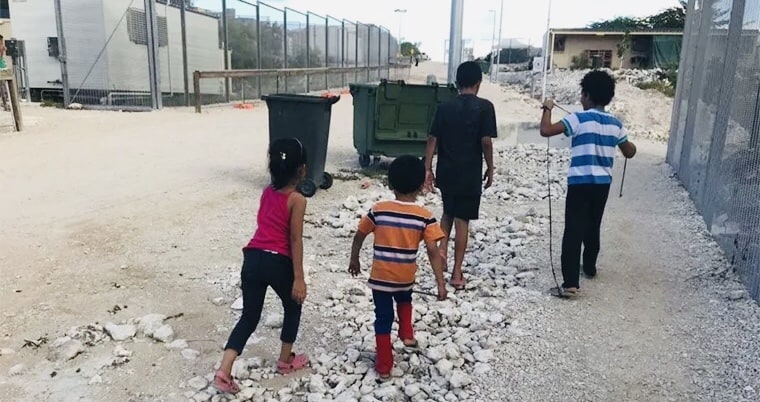A sample of asylum seeking children and young people (CYP) held on Nauru were found to have high rates of physical and mental health problems around the time of transfer from Nauru, according to new research.
The study also found that most had multiple adverse childhood experiences in their lifetime, including disruptions to education, family separation and witnessed trauma.
For the study, researchers retrospectively analysed detailed health assessments of 62 CYP completed by paediatricians and child and adolescent psychiatrists from 10 health services across Australia.
The research, published in Archives of Disease in Childhood, found physical and/or mental health difficulties in almost all CYP in the sample. The CYP were subjected to Australia’s offshore immigration policy for asylum seekers arriving by boat with more than half of the sample held on Nauru for four or more years.
Lead author of the study Dr Lahiru Amarasena, a paediatrician and PhD student at the School of Women’s and Children’s Health, UNSW Medicine & Health, says the research adds to the evidence that immigration detention is a harmful practice for children.
“These poor health outcomes were almost universal in our sample of CYP who experienced forced migration and were exposed to the policy of indefinite mandatory detention.” Dr Amarasena says.
Immigration detention is a known adverse childhood experience and may contribute to or exacerbate detrimental outcomes in CYP seeking asylum. Previous studies have documented harmful consequences of the practice, including physical, psychological, neurodevelopmental and educational difficulties.
Of those in the current study, physical health problems were present in 55 CYP (89 percent), most commonly malnutrition (24 per cent), dental disease (21 per cent) and abdominal pain (16 percent). Mental health conditions were also formally diagnosed in 27 CYP (44 per cent), but most of the study sample had one or more mental health symptom (79 percent) – including self-harm ideation or attempts (45 percent).
The rates are comparable to previous studies of CYP exposed to immigration detention and far higher than in non-detained refugees or general Australian populations.
“Our study involves a small sample of detained CYP, but contextualised in other national and international studies and reports, we know that no time in detention has been determined to be safe, and the United Nations recommends avoidance of detention practices for children.” Dr Amarasena says.
The research also found 58 CYP (94 percent) had exposure to one or more adverse childhood experience (ACE) in their lifetime, including 13 CYP (21 percent) with exposure to four or more ACEs. Twenty-five CYP had exposure to one or more types of abuse or neglect (40 percent). Most (63 per cent) had witnessed trauma in their lifetime.
Most school-aged children had also experienced disruptions to their schooling (77 percent). Eleven CYP (18 percent) were separated from one or more primary relative on Nauru.
“For health services, it also highlights the need to be aware of these adversities when caring for kids already exposed to immigration detention and forced migration,” Dr Amarasena says.
The researchers also acknowledge the study design with recruitment through health services, while necessary to minimise further trauma, has limitations given the challenges of working with vulnerable, mobile populations, particularly during COVID-19 restrictions.
Since mid-2013, under offshore immigration policy, all of those seeking asylum by boat, including children, were sent offshore and were prevented from ever permanently resettling in Australia regardless of their refugee status.
The majority of asylum-seeking CYP were transferred to Nauru, where a maximum of 222 were held at any one time, between 2013 to 2019. Some were released into the Nauruan community after Nauru recognised their refugee status and a small proportion were eventually resettled in other countries.
Most were transferred to Australia on temporary visas. All children were transferred from Nauru by early 2019 but the policy of offshore processing and indefinite mandatory detention continues to be in effect.
“Some recipient countries continue to employ immigration detention for children and young people, even though it breaches international human rights conventions. Immigration detention of children is a preventable adverse childhood experience,” Dr Amarasena says.
